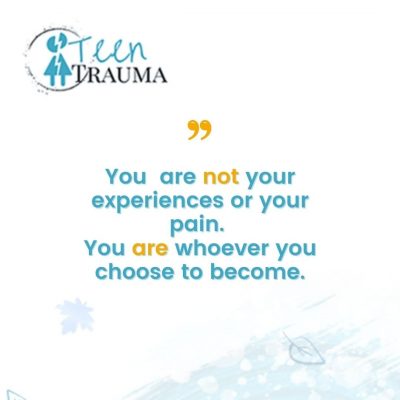
What To Do When You or Someone You Know is a Victim of Sexual Abuse?
Trauma as a Result of Sexual Violence or Sexual Abuse
When a child has been sexually abused or is suffering from teen trauma due to a sexual abuse or sexual violence, the intensity of emotions, the shock, and confusion are overwhelming. Start by understanding their experience to help them start healing.
Teen sexual abuse is an epidemic in the U.S. Data provided by the Department of Health and Human Services supports the horrific prevalence of sexual violence against teens: out of nearly 85 percent of adolescents victims of abuse (neglect, physical), over seven percent suffer sexual abuse only.
In many cases of teen sexual violence, physical and emotional abuse is also inflicted on the child.
Signs of a Sexual Abuser
In addition, certain risk factors make parents, guardians or the intimate partner of one parent more likely to sexually abuse a teen in their care.
These risk factors may indicate that someone you know may potentially be a sexual abuser:
- Having a drug or alcohol addiction
- Being the victim of past sexual abuse
- Living in a homeless shelter or other substandard living condition
- Being mentally ill (sexual abusers of teens are frequently diagnosed with paraphilia, antisocial personality disorder or bipolar disorder)
- Having an intellectual or physical disability
What is Sexual Abuse and Sexual Assault?
Sexual abuse is any form of sexual activity with a child. Children do not have the ability to consent to any sexual activity. The age of consent varies by state, but typically it ranges from 16 to 18. Sexual abuse is a crime, and the legal term for it is sexual assault. It is common in daily conversation to use these two terms interchangeably.
Parents and teens need to understand that sexual abuse is not just intercourse or sexual acts that require physical contact.
Sexual abuse includes:
- Adults exposing themselves to a child
- Manipulating a child to commit a sexual act, including masturbation.
- Taking semi-nude or nude pictures of children or creating videos.
- Fondling
- Digital activities like chatting, sexting, text messages, and inappropriate phone calls.
Effects of Child Sexual Abuse
The consequences of experiencing sexual abuse as an child or adolescent is devastating:
- One out of every four teen girls who suffer sexual abuse will become pregnant before their 18th birthday
- Sexually abused teen boys and girls will likely engage in risky sexual behaviors, such as prostitution, promiscuity and unprotected sex
- Nearly 30 percent of sexually abused adolescents will later abuse their own child
- Sexually abused male teens are at an extreme risk of becoming pedophiles as adults
Researchers who conduct regular studies on child sexual abuse state that statistics affirming abuse are likely underestimated by more than 20 percent. Many adolescents never report sexual abuse to the authorities or simply claim it never happened when confronted by other victims who have also been abused by the perpetrator.

Psychological Disorders of Teens Who Suffer the Traumatic Experience of Sexual Abuse
Posttraumatic stress disorder (PTSD) is the most commonly diagnosed mental illness in sexually abused teens.
PTSD The Long Term Effects of Sexual Abuse or Teen Sexual Violence
Post-traumatic stress disorder (PTSD) is the most commonly diagnosed mental illness in sexually abused teens. Symptoms of PTSD involve:
Flashbacks (intrusive memories of the trauma that can’t be controlled)
Being in a constant state of hypervigilance (for example, the sounds of footsteps in a hallway or seeing a man with a beard could trigger panic attacks)
Insomnia, nightmares and night terrors
Emotional numbness/inability to feel or express emotions
Difficulty maintaining familial and personal relationships
Health issues resulting from chronic anxiety and depression: weight problems due to eating disorders, migraines, hair loss, experiencing body pain that has no direct cause, etc
Phobias developing from long-term sexual abuse (a teen who had been sexually abused for years by an uncle is now terrified of bathrooms because the bathroom was where he would abuse her)
Suicide ideation/suicide attempts
Sexually abused teens often turn to drugs and alcohol as a way to self-medicate as a way to forget about experiencing trauma. Many will drop out of high school, run away from home and live on the streets just to avoid the abuse.
In fact, the Child Sex Abuse Prevention and Protection Centers state that 30 percent of teen sexual abuse cases are never reported to the proper authorities.
Unless professionally treated with long-term psychological counseling, teen victims of sexual abuse often suffer from drug addiction, homelessness and severe mental health issues as adults.
30 % of teen sexual abuse cases are never reported to the proper authorities.
Teen Trauma Click to Tweet
Why Do Teens Keep Sexual Abuse a Secret?
Teens suffering sexual violence say they kept the abuse a secret out of unadulterated fear. Fear that no one would believe them, fear of retaliation by the abuser, fear of being ostracized by family and peers and fear that nothing would happen to the abuser.
They also don’t tell anyone because they feel ashamed and a strong sense of guilt for possibly being responsible for the abuse. Men who sexually abuse teens may tell their victim it is “their fault” because of the way they dress, talk or behave around them.
Adult women who sexually abuse teens tend to manipulate teens differently as their approach is more emotionally manipulative then physical.
Sometimes the silence feels too hard to break.
Teen Trauma Click to Tweet
Read Kiera's Story
A Teen's sexual abuse story
Kiera had always had great grades and got a lot of attention from guys. She never had trouble finding a prom date or something fun to do over the weekend. She had big plans for her upcoming Sweet 16 party. Her boyfriend was just as popular and on track to become a CEO someday.
Her mother had had ups and downs since Kiera’s dad walked out, but this seemed like an upward trend. The new boyfriend had a decent job. He was attractive and very nice.
One day when Kiera got home before her mom did and some really uncomfortable stuff happened. He offered to help her with some homework and got…well, gropey. She brushed it off, blushing. Mom would be devastated.
So, she kept it quiet.
It is not consent if you make me afraid to say no.
Teen Trauma Click to Tweet

“In order to escape accountability for his crimes, the perpetrator does everything in his power to promote forgetting. If secrecy fails, the perpetrator attacks the credibility of his victim. If he cannot silence her absolutely, he tries to make sure no one listens.”
Judith Lewis Herman Click to Tweet
She felt guilty for sometimes feeling flattered and attracted back. Sometimes she felt sick and angry with herself.
How Should Parents Cope with Learning Their Teen has been Sexually Abused?
Shock, disbelief, confusion, anger–the flood of intense emotions experienced by parents upon learning your child is the victim of sexual violence is something no parent should have to endure. Disbelief and denial are typically the first thing parents feel, followed by blind anger and guilt.
How to support a teen who was sexually abused?
While it is normal to experience an emotional rollercoaster if this occurs, parents should try and stay focused on the one thing that matters most in the moment–their child. Reassure the teen that you love them. Tell the teen they have nothing to feel guilty or ashamed about.
Explain calmly what will happen after the police are informed (detectives, physical exam, arrest of the offender). And, as soon as possible, make an appointment with a counselor who specializes in helping teen victims of sexual violence.
Each state has different sets of laws regarding sexual abuse of teenagers. For a complete list of state laws and who to contact about sexual abuse of a teenager, visit Findlaw/Sexual Assault.
The shame should never be on the survivor, only the aggressor.
Teen Trauma Click to Tweet
Read More From Our
Latest Blogs

Mastering Coping Skills for Teen Emotional Resilience
Trauma in Teens: What You Need to Know Trauma comes in all shapes and sizes. Something that one teen considers traumatic may not be traumatic

Supporting Teen Self-Care and Emotional Well-being After Trauma
Teen Self-Care: Building Resilience Post Trauma Self-care is quickly becoming a buzzword in the mental health world, but what exactly does it mean, and how

Child Sex Trafficking: Breaking the Cycle and Preventing Trauma
Emerging from the Shadows: Hope After Trafficking Victims of child sex trafficking and parental trafficking will need years of therapy for symptoms of post-traumatic stress
Resources for Sexually Abused Teens









